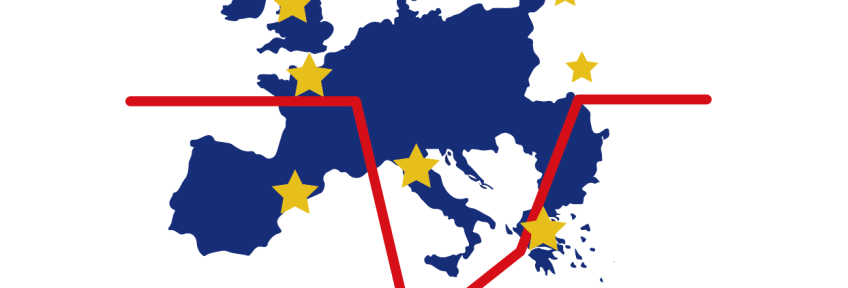Innovative response
Our communities are being hit hard by the Covid19 crisis, especially small and medium sized enterprises (SMEs). Consequently Europe faces a serious risk of a deep and lasting recession. It is in the interest of both local SMEs, regional and local authorities, local and cooperative banks and private investors to join forces to support SMEs and sustainable local/regional economies. However, how can we maximise the impact of these funds and create a truly sustainable recovery?
The Impact Multiplier system is based on a tried and tested platform (Cyclos fintech software) that will boost recovery by increasing the velocity, the circulation and use of recovery funds, private investments and local consuming power. By making money circulate faster and more often among local SMEs, the impact of recovery and investment funds will be multiplied. This initiative is a B2B approach that connects with the European Solidarity Voucher Scheme which stimulates B2C consumption. The revenue from this system can bring about a return on investment, as well as be re-granted towards civil society activity for a truly healthy and sustainable recovery.
Especially for Greece that has suffered during the previous decade an economic and financial severe downturn and given the fact that local production has to be strengthen, agriculture and tourism sectors have to be sustainable as well as other important sectors of the national economy the Impact Multiplier appears to offer a viable tool.
Learn more about our project: https://territories4resilience.eu/ and
Specific issues addressed and anticipated impact
The Impact Multiplier system is a fintech platform based on the software Cyclos. Funding from various sources will be channeled through the Impact Multiplier, a dedicated payment platform for SMEs. The funding is digitally rooted to multiply its impact in two ways:
1. The money will circulate between the participating SMEs for a fixed period. This increases the income of all SMEs, including those companies that don’t receive government support, while they do suffer from the economic crisis caused by Covid19. Businesses will see that through cooperation they earn greater revenues, because their colleagues and competitors are to earn and spend.
2. A small daily fee, a negative interest, on the circulating money incentivizes participating enterprises to spend quickly, allowing others to earn and spend more within the community, all the while healing the recession and socio-economic damage. Previous use of this technology in local systems shows that this enables money to circulate at least three more times within a community of users than otherwise would be the case.
Applied to recovery funds and investments, this could make a substantial contribution to the recovery of small enterprises and the regions they operate in. The additional income for SMEs generated through the system brings additional tax income for governments to retrieve part of their investments in recovery.
It is important to highlight that this system can continue to operate beneficially far beyond the Covid19 crisis. It can keep on stimulating local businesses or even pan-European communities long after the recovery is complete. It would not only add to socio-economic stability, through reinvestment in civil society, it will also add to the democratic fabric of our communities, preventing the tendency towards radicalisation which crises always bring with them.
Organisations/institutions involved
The consortium is convened by the Social Trade Organisation (STRO) and Alliance4Europe, and welcomes partnerships with local authorities, regional governments, business networks and civil society. As of today the consortium participants come from France, Spain, Greece, Italy, United Kingdom and can be found in the following link: https://territories4resilience.eu/consortium/
In Greece Development Agency of Karditsa (AN.KA SA) is the spearhead of this initiative.
Potential issues
The expansion of the regional and local network in Greece is of main importance. The aim is establishing a sustainable network in terms of participants (SMEs, customers and Authorities) and see the positive effects in business revenues and local/regional development. A wide variety of SMEs has to participate in order to ensure the viability of the Impact Multiplier System in selected territories of Greece.
- Regional/State government
- Local government
- Private Sector
- Non-Profit/Civil Society
- Economic Umbrella Organisations
Issues being addressed:
- Governance responses
- Social effects of the crisis
- Financial Technology solutions
- Local and Regional Development
Response contact:
Response tags:
Recovery-OrientedDate Submitted:
10 July 2020


